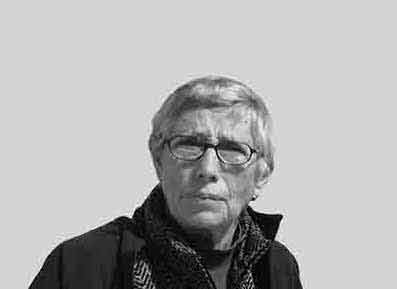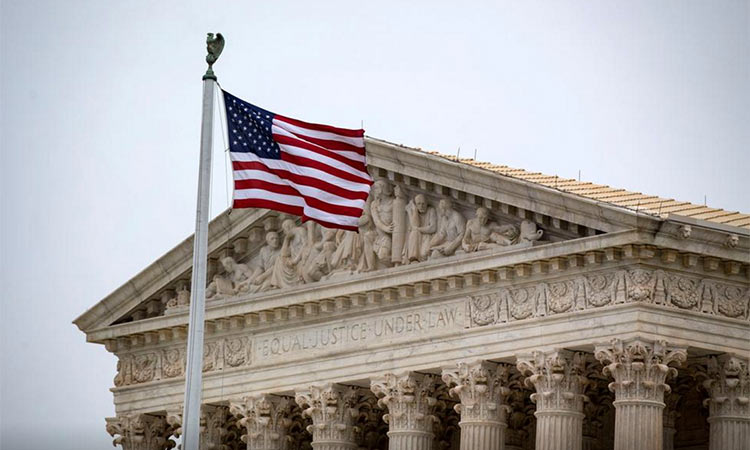‘Change’ will not change Palestine-Israel situation

Michael Jansen
The author, a well-respected observer of Middle East affairs, has three books on the Arab-Israeli conflict.

Palestinians help a wounded protester amid clashes with Israeli security forces in Occupied Jerusalem’s Al-Aqsa mosque compound on May 10. File/Agence France-Presse
No fewer than eight parties have ganged up against Netanyahu to form the so-called “Change” coalition, leaving him with the backing of only four holding 42 seats in the 120 seat Knesset.
These are the Likud with 30 seats, the Oriental religious party Shas with nine seats, the ultraOrthodox United Torah Judaism with seven, and the extremist religious Zionist party (an offshoot of outlawed Kahanism) with six. Other small parties which oppose “Change” won 15 seats while one Knesset member from the “Change” coalition opposes its bid raising the number in the opposition to 58. One remains undeclared.
The “Change” coalition consists of centrist Yesh Atid with 17 seats, Blue and White with eight, far right Yamina with seven, Labour with seven, right-wing Yisrael Beiteinou with seven, New Hope with six, leftist Meretz with six, and the Palestinian Israeli conservative United List with four. If the coalition survives, the United List will be the first party representing Palestinian citizens of Israel to enter government although, on occasion, these parties have supported a government from outside. The United List will not claim a ministerial portfolio bur chairmanship of an influential Knesset committee or two.
If there are no further defections, “Change” should have a narrow majority of one, but right-wingers are under pressure and, even, threat from Netanyahu to quit the coalition.
The Palestinian-Israeli Joint List, with six, seats has said it will not vote for “Change.” If its leader, Ayman Odeh, changes his mind “Change” could have a comfortable majority in the Knesset and Odeh would become a “kingmaker.”
Unfortunately, the “king” who is set to emerge as head of the coalition is Naftali Bennett, who is to the right of Netanyahu. Five coalition leaders — Bennett, Yair Lapid, Benny Gantz, Avigdor Lieberman, and Gideon Sa’ar – have served in Netanyahu governments.
Son of Californian immigrants, Bennett is the first religious politician and the first to have lived — in his case briefly — in an illegal West Bank colony. He is also a pragmatist married to a secular high-end pastry chef. He has upset right-wingers for his ideological inconsistencies.
The magician who pulled the coalition out of this top hat is Lapid of Yesh Atid. He would succeed to the top job if “Change” is confirmed by the Knesset and survives for that long. It is difficult to see why he will not be the first to serve as “Change” prime minister as his party has the largest number of seats after the LIkud. But Lapid needed Bennet if the coalition was to secure the majority. Lapid is clearly an unusual politician because he has suppressed his ambition and trusts Bennett to step down after two years as agreed in the rotation deal.
Blue and White chief Gantz trusted Netanyahu to hand over when his portion of their shared term ended. Instead, Netanyahu engineered a new election by refusing to pass the state budget.
In one way or another Netanyahu betrayed or alienated all five men who have committed to form a disparate left-centre-right-extreme right coalition. Their goal — and the aim of the other three coalition partners — is to overthrow Netanyahu.
This being the case, there are major differences among the coalition partners although there seems to be agreement on the demands of Mansour Abbas of the United Arab List. He seeks funding for Palestinian Israeli municipalities, strong anti-crime measures in these communities, an end to demolitions of Palestinian Israeli homes built without permits, and recognition of Bedouin settlements which are routinely bulldozed.
The general policy guidelines are to avoid clashes over religion, continue Netanyahu’s policy of maintaining and building within West Bank colonies, and ban colonies from expropriating and annexing additional West Bank territory.
The partners are discussing legislation to restrict a prime minister to two terms in office and barring anyone who is indicted from forming a government, becoming prime minister or Knesset speaker. Such measures would effectively bar Netanyahu from returning to office.
Palestinian spokesmen and commentators argue that the “Change” coalition will not adopt policies which will change for the better conditions for Palestinians in East Jerusalem, the West Bank and Gaza. Leftist Meretz is the only coalition partner to advocate and call for implementation of the two-state solution involving the creation of a Palestinian state in the territories occupied by Israel in 1967.
While Labour paid lip service to this objective, after the Oslo accords were signed in 1993, then Prime Minister Yitzak Rabin – who had been elected on a peace platform in 1992 – continued colonisation and stalled Israeli withdrawal from Palestinian territory. Oslo failed because Rabin and his successors never had the intention of allowing a Palestinian state to emerge.
The founder of the coalition, Lapid formed his Yesh Atid party in 2012 and won 19 seats in the Knesset in 2013, becoming the second largest party after the Likud. He secured the finance portfolio in the Netanyahu government although its programme clashed with Lapid’s objectives. Ahead of that election his party issued a platform calling for “two states for two peoples” and “divorce” between Israelis and Palestinians. He said Israel would annex major blocks of colonies and maintain a united Jerusalem as its exclusive capital. He favoured annexing the Syrian Golan Heights.
He adopted the motto: “Maximum Jews on maximum land with maximum security with minimum Palestinians.”
He also said he would not join a cabinet that stalled peace talks with the Palestinian Authority, which in fact that government did, bestowing on Lapid a dose of reality. His acceptance of reality has been demonstrated by his formation of a coalition which will be led for the next two years by a hard right, religious “nationalist” whose agenda differs little from that of Netanyahu.
The reality is that heavily armed and militarised Israel intends to construct colonies at will, displace Palestinians, deny them their right of self-determination, and limit their civil and human rights.
Israel’s ultimate goal was set in stone at the end of the 19th century by the Zionist movement: a Jewish state in the whole of Palestine. Furthermore, according to the men who launched this enterprise, this state could have further territorial ambitions on the territory of its neighbours. The Golan is just the first slice.







